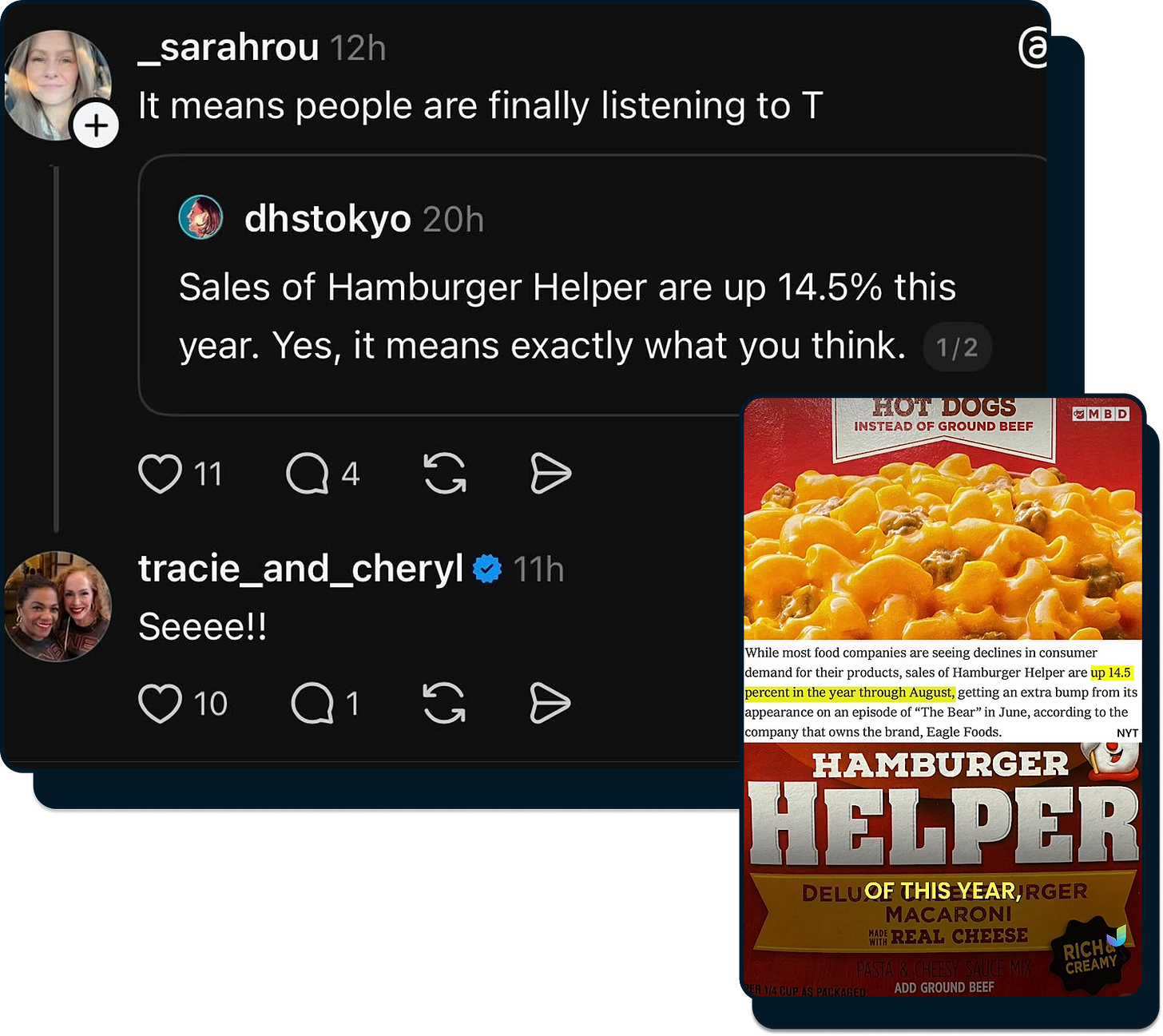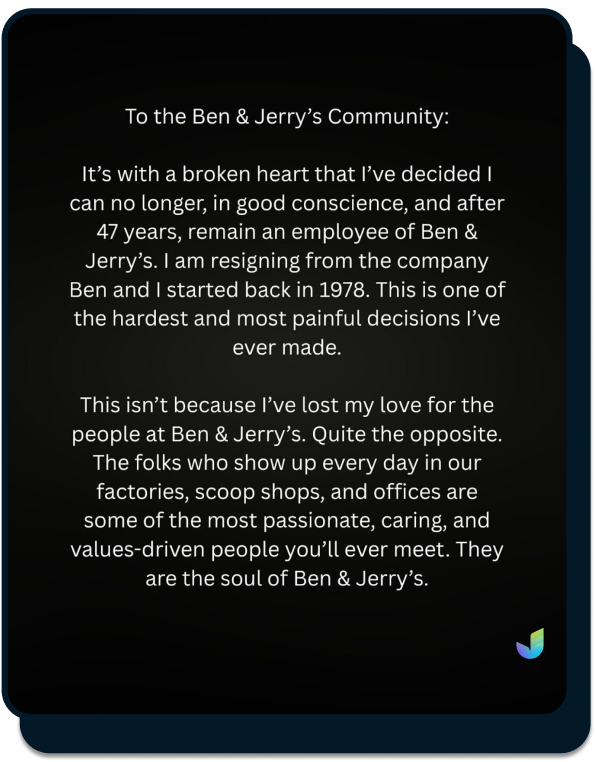
Hey Pies -
Hey fam, checking in. You can tell a lot about the economy just by peeking into someone’s grocery cart. Lately it’s been all about comfort and affordability—Hamburger Helper sales are up 14.5% this year, partly thanks to its cameo on The Bear. Feels like a small thing, but it’s also a real recession signal.
At the same time, I’ve been thinking about how remix culture shows up everywhere. TikTok comedians are reshaping Saturday Night Live, Nigerian chefs are bringing jollof and suya to supper clubs in London, and even Climate Week panels are starting to sound like community conversations. The throughline? Innovation happens when culture, resilience, and collaboration meet.
Right now I’m in NYC for UNGA Climate Week, diving deep into these intersections. We’re technically at capacity, but if you’re nearby and want to roll through as a true bodega baddie—we might have space (plus we’ve got some special rebellious cloudy donuts 🍩).
🌱
Riana

Recession Signals in the Grocery Aisle You can learn a lot about the economy by watching what’s in people’s carts. While many food companies are seeing declines in demand, Hamburger Helper sales are up 14.5% year-over-year through August, boosted by its cameo on The Bear. This isn’t just about nostalgia—it’s a signal of recession. When wallets tighten, consumers return to comfort, familiarity, and affordability.
📺 From Saturday Night Live to Late Night Cravings In 2025, Saturday Night Live is showing us in primetime reshaping how culture is made, shared, and monetized. SNL’s latest TikTok-native hires show how comedy born online gets validated by mainstream institutions. The same remix logic applies to food and supply chains: innovation comes bottom-up, from creators and communities, not just legacy players.

🤝 Collaboration as Culture From our favorite distribution collab of the century, the culture of passion continues to carry millions of impressions. Intention and supply chains alike scale through remix, community, and connection across industries and borders.
Nigerian and West African cuisine thrive on remix. Jollof rivalries, suya nights, and egusi soup aren’t just meals - they’re formats, like viral sketches, shared, reinterpreted, and amplified across the diaspora. TikTok food creators from Lagos to Accra are taking indigenous ingredients global, bypassing old gatekeepers the same way internet comedians bypassed traditional comedy clubs. West African restaurants and food brands are scaling into Europe and the U.S., propelled by diaspora demand and digital storytelling.
Italy x Nigeria This week I attended the Ebi Yayo supper club—an emerging culinary experiment blending Nigerian flavors with Italian traditions. It’s proof that combining emerging and globally recognized cuisine will like What begins as fusion dining can evolve into categories with scale: spices, frozen meals, and even fragrance, where sensory cues from Nigerian peppers and Italian herbs create new consumer experiences. This is culture remix in action: cross-border, cross-category, and endlessly exportable.
Growth, Climate & Collaboration More from Climate Week where Central, South, emerging countries in Africa and Asia emerge as central to the conversation about resilience. With a population set to soar past 400 million by 2050, the region is both vulnerable to climate shocks and rich in opportunity. We love the conversations about 50 ways to craft cassava exports to port infrastructure and fintech-enabled logistics, growth depends on collaboration. Farmers, technologists, and investors.

Style Meets Food As GQ positions style as a cultural lens, food is stepping into that same role. Dining experiences, street markets, and snack brands are becoming symbols of identity, taste, and status. Food is becoming as aspirational as fashion.

Eat well 🥧

Scientist. Nutrition Leader. Founder of Journey Foods